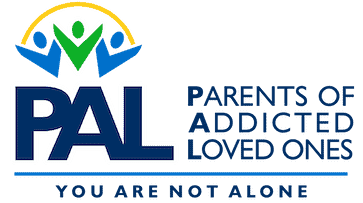It was a little over two years ago when Terri Cox received a magazine article that her brother-in-law saw – the cover story of Money magazine, highlighting Parents of Addicted Loved Ones.
“He knew I was really struggling with my daughter, so he thought I might be interested,” Terri recalls. “I reached out right away!”
Finding hope on the phone
Terri attended the national call-in meetings, not just because there wasn’t a meeting near her Texas home, but because she is confined to her bed after two severe back injuries. “I broke my back in a car accident when I was 15,” she says, “and then in 2010 I fell off a roof.” The injuries led to spinal arachnoiditis, a painful condition that keeps her confined to a hospital bed in her living room 90 percent of the time.
Technology has been a huge blessing in her life, however. She has two grandchildren who live in Tennessee, but she Skypes with them regularly. Her third grandchild – a 9-year-old girl who’s “super-smart with a bubbly personality” ironically is also confined to bed with a genetic disease called spinal muscular atrophy. Diagnosed at four months old, she can’t move or talk, but is able to use eye movement to speak through a computer.
Yaya (the grandkids’ name for Terri) rarely gets to see her in person because of their combined mobility issues, but they Skype several times a day, and Terri “tucks her into bed” every night. She’s also able to help by taking over coordination of the girl’s doctor appointments, teacher meetings, medical supplies and other details.
Changing the world from her hospital bed
So Terri was experienced in communicating online, and when she discovered she could attend PAL meetings by phone, she absorbed the materials and the friendships she found. It wasn’t long until Mary Walker, one of the phone-in facilitators, realized that Terri would be a wonderful facilitator herself.
“She knew and really understood the concepts and principles of PAL,” Mary says, “and I knew she would get great satisfaction out of helping others. You sometimes meet certain people who you know are going to be great facilitators – they really grasp it – and she’s been a great asset for PAL.”
Before long Terri was substituting for the call-in meetings, and then COVID-19 hit. PAL was looking to expand to more national virtual meetings, and she volunteered. Terri has been running a successful meeting on Monday nights, and recently started a new “night-owl” meeting on Friday nights.
“PAL has changed my life,” Terri says. “The lessons are phenomenal, but we also learn so much from each other. Because of PAL, I became mentally strong enough to tell my daughter she had to move out of my home. I’m not letting her move back, and I’m not giving her money of any kind. I’ve told her we can visit – as long as she’s sober.”
She wants parents to know that they truly aren’t alone, and that PAL meetings are a safe place where they don’t need to be worried about being judged.
“A lot of family and friends don’t understand what we’re dealing with as parents,” she says. “But with PAL, no one looks down at you – because we’ve all been through it, too.”
